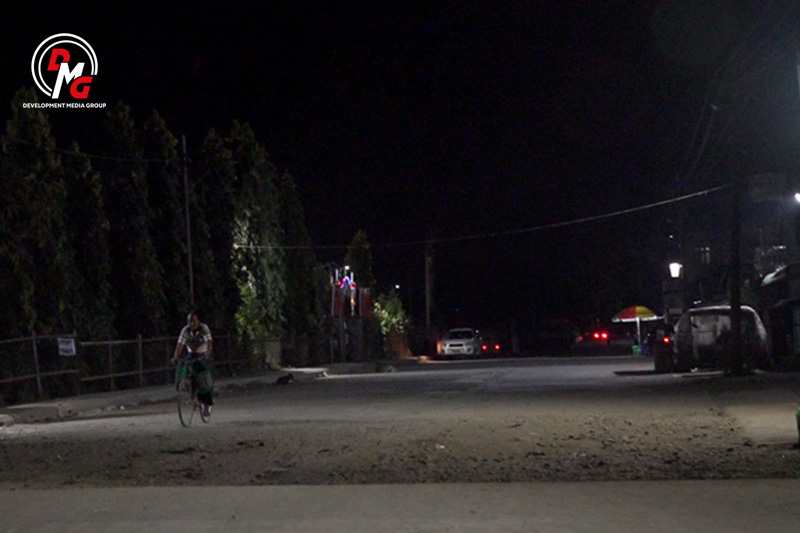- Junta claims over 24 million ballots cast in 2025 poll, cites strong youth turnout
- ULA expands HIV prevention, healthcare services for sex workers in AA-held areas
- Over 600 Mro villagers displaced in Maungdaw amid threats from ARSA, RSO
- Clashes continue in Sittwe as junta reinforces naval, armored deployment
- Arakan Army signals willingness to forge strategic partnership with Bangladesh’s new government
Editorial: Evolving Faces of Fear in Arakan State
The organised guns have largely fallen silent in Arakan State since the Myanmar military and Arakan Army (AA) observed a humanitarian ceasefire in late November of last year, but civilians’ fears for their own safety have arguably only grown in Arakan State.
21 Sep 2023

The organised guns have largely fallen silent in Arakan State since the Myanmar military and Arakan Army (AA) observed a humanitarian ceasefire in late November of last year, but civilians’ fears for their own safety have arguably only grown in Arakan State.
Today, Arakan State is best characterised by tight inspections, unsolved murders, unidentified bodies, and arrests of activists. People do not feel safe even in their own homes, not to mention on the streets.
At the same time, tight security along the roads in Arakan State has seriously disrupted the flow of goods, with civilians being forced to pay exorbitant prices due to the transport difficulties. A generally lethargic-at-best economic outlook combined with rampant cost increases breeds a fear all its own.
Burglaries and muggings have become commonplace in many parts of the state. There are several recent murders for which no suspect has been detained.
The military regime’s arrests of prominent philanthropists including Ko Zaw Win from Kyauktaw and Daw Nyo Aye of Sittwe have put a damper on many charities’ well-intentioned ambitions in the state.
Fierce fighting broke out between the Myanmar military and the AA in December 2018 and continued until October 2020, when the two sides agreed to stop fighting to make way for the general election in November of that year. Fresh fighting erupted in August 2022, but the two sides have ceased hostilities on humanitarian grounds since November of last year.
Caught up in the conflict, more than 300 civilians were killed and over 700 more injured since late 2018. Over 200,000 people were displaced by the fighting in Arakan State and Paletwa Township in neighbouring Chin State. Some 60,000 people remain at displacement camps.
More than 650 civilians were arrested, and at least 24 people died in custody. Around 60 civilians were arrested by the AA, the rest by the Myanmar military.
The regime has also imposed long sentences on students who staged peaceful anti-war protests on charges that carry heavy punishments.
On August 2, the junta granted an amnesty for 61 locals in Arakan State charged under Section 17 (1) and (2) of the Unlawful Associations Act over their alleged ties to the AA. More than 120 people, however, charged under Section 17 (1) and (2) of Unlawful Associations Act and Section 505(a) of the Penal Code remain on trial at courts across Arakan State.
The regime has portrayed Arakan State as a stable region amid ongoing fighting in many parts of the country. At the same time, pro-junta Telegram channels have launched a veritable propaganda campaign against the AA.
In doing so, one aim clearly is to incite enmity between the Arakanese and Muslim communities in Arakan State.
Meanwhile, people have also complained about shortcomings in the administrative and judicial systems of the AA, which now has control over much of rural Arakan State and continues to consolidate its control. People have complained about delays in the AA’s handling of complaints.
Today, fears hang over Arakan State. If certain courses are not corrected, personal freedoms will continue to erode.
What constitutes ‘truth’ becomes tenuous when the people fear those in power, and the real truth is easily lost.
Arakan State civilians in recent years have grievously suffered from the military-AA conflict, Covid-19 pandemic, and natural disasters including Cyclone Mocha in May and subsequent flooding. They have suffered enough. While they are struggling to recover from the various hardships thrown their way, they should be allowed to do so without some — if not all — of the abovementioned fears.







.jpg)












